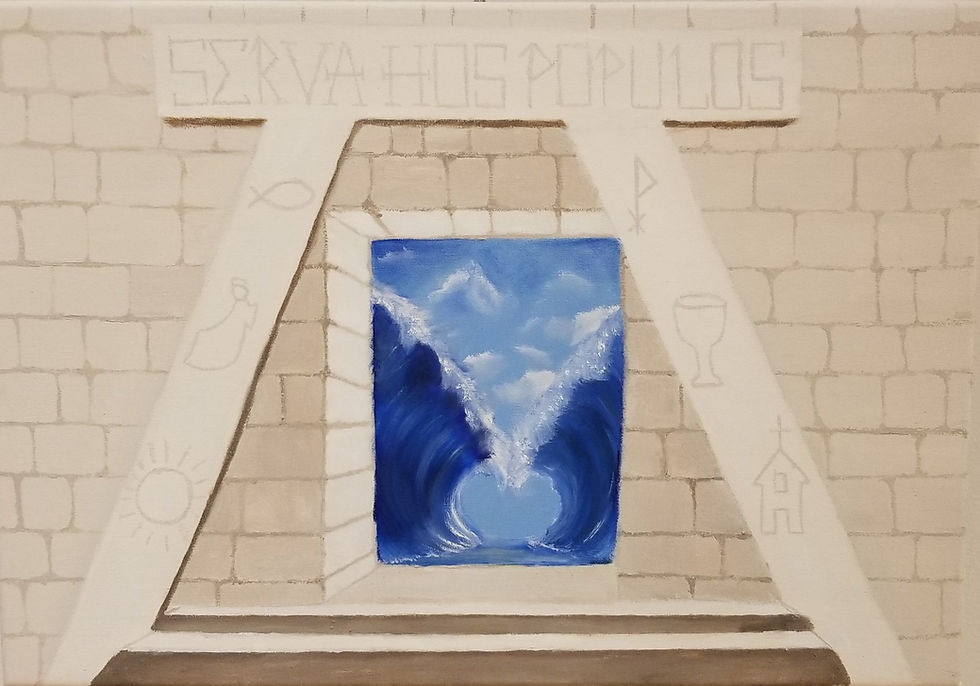Ethical Visions
- Kevin Hamzik
- Jun 16, 2023
- 4 min read
“If only we try to live sincerely, it will go well with us, even though we are certain to experience real sorrow, and great disappointments, and also will probably commit great faults and do wrong things, but it certainly is true, that it is better to be high-spirited, even though one makes more mistakes, than to be narrow-minded and all too prudent.”
-Vincent van Gogh, a Letter to His Brother 1927
In the ten years that Vincent van Gogh painted, he created an estimated over 900 paintings. By experiencing some of his paintings, you can tell that he was someone who felt very deeply, as many artists do. Van Gogh probably made many mistakes as well throughout his short career, also characteristic of artists as they continue to practice and grow.
The experience of leading an ethical and moral life is a lot like the practice of painting. Being ethical and moral, while being a very personalized thing based off your own personal experiences, is something that leads you out of yourself towards someone or something else. Part of this is being open to making mistakes and learning to grow from them. As a painter, I am constantly putting myself out there, pulling feelings and emotions out of myself to show them in a visually unique way. I have made many mistakes along the way, not just in my work, but in my life as well. Part of being an artist is being sensitive, and part of that sensitivity is taking my work, my experiences, and my relationships seriously. When I make a mistake in any category, I’m very hard on myself for it, and in many ways, I think I’m the hardest on myself than anyone else.
While I used to beat myself up a lot for my mistakes, it wasn’t until I began to stress the importance to others about making mistakes that I had to reflect on my own ethical and moral treatment of myself. Of course, it is important to treat others in an ethical and moral way, it must start with treating yourself in that same fashion.
In my own Catholic faith tradition, I’ve always found myself inspired by the story of Moses, found in the Book of Exodus. Moses grew up in the home of the Pharoah of Egypt, who had enslaved the Israelites and even outlawed the birth of Hebrew children at one point. Moses probably lived a lavish life until it was found that he was of Hebrew descent and ended up escaping from Pharoah’s home to Midian. It was there that Moses received visions and heard the voice of God, most famously through the burning bush, that he was chosen to lead the Israelites out of Egypt.

We don’t know much about the early life of Moses but knowing that he lived in the home of Pharoah he probably lived a good life there, and it wasn’t until he grew up that he recognized the bad treatment of the Egyptians towards the Israelites, his own people. I must imagine that Moses probably struggled with himself in the same ways that I struggle with myself. I’m sure he looked back on every mistake he had made and thought he was unworthy of the task that God had given him. No matter how many visions or dreams Moses had about saving his people, it had to have been hard to see himself as good or have an ethical vision of himself, but he worked past those feelings and mistakes to be the person that he needed to be for others.
In our Franciscan tradition, both Francis and Clare must have had difficulties seeing themselves as good at some point. Francis, who traditionally we hold as a “party boy” as a teenager and dreamed of being a knight, probably made a lot of mistakes in his youth. As for Clare, while we don’t know much about her early years, recognized that she wasn’t perfect either, but instead knew that she was perfect in being herself. Francis and Clare, like Moses, had to see their mistakes not as a roadblock, but simply as a bump in the road that they would learn from. Francis and Clare believed that their mistakes were not something to be defined by, but as something that would help them be the best versions of themselves that they could be.
Personally, that is what I believe leading an ethical and moral life is about: being the best versions of ourselves that we can be for others. None of us were created to be perfect, we all have moral failures, as St Bonaventure calls it, ingrained in us. The important part of that is recognizing we are still good and loved even with those failures. We must see them for the learning experiences that they are and put them behind us. We won’t get to where we’re going if we dwell on what we cannot be for too long.
No matter what, you are still good, and you are still loved. The world needs you to be exactly who you are.